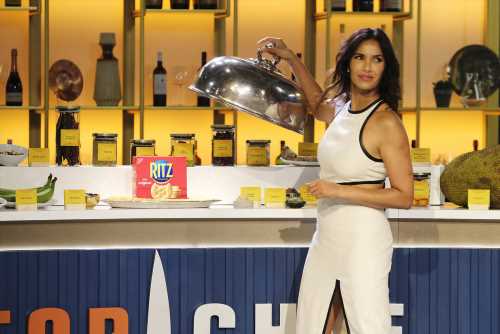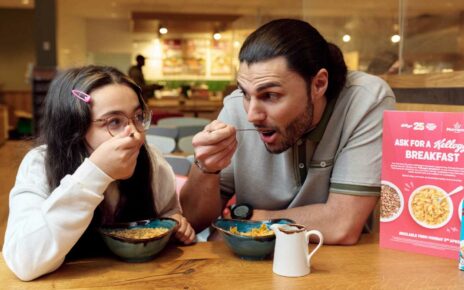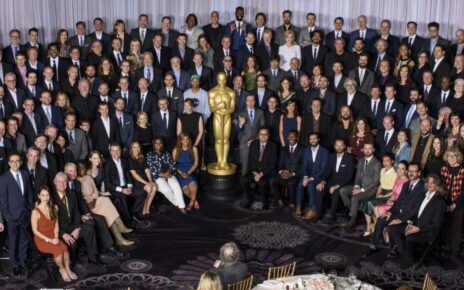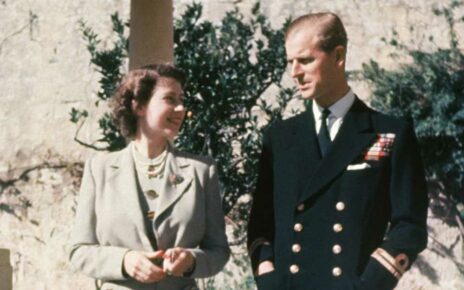This is going to sound like a backhanded compliment, but I mean it: One of Padma Lakshmi’s most valuable skills as the host of “Top Chef” — a major part of what will be missed when Lakshmi departs the show after the June 8 finale — is product placement.
In the crowded, sometimes tawdry world of reality competitions, “Top Chef” is unique in its credibility. The show is effective entertainment, but over 20 seasons in 17 years, the Bravo mainstay has also established itself as an arbiter of taste on par with the Michelin guide. Some of that authority comes from longevity; some from Lakshmi’s fellow judges, chef Tom Colicchio and editor Gail Simmons; some from casting, which has generated a talent pool so formidable that the show frequently circles back to its own alumni, including for this season’s London-set World All Stars. But a great deal of it comes from Lakshmi, a presence so commanding she can deliver phrases like “the Glad family of products” and “furnished by San Pellegrino” without disrupting the show’s carefully constructed sense of gravitas.
To fans, Lakshmi is the face and voice of “Top Chef.” It’s Lakshmi whose narration lays out the competition’s stakes every episode. It’s Lakshmi who presides over the weekly Quickfires in addition to the main challenge, getting more face time with cast members and tastes of their food than any other judge. And it’s Lakshmi who tells eliminated contestants to pack their knives and go, a catchphrase she delivers with an inflection that changes based on context. Early in a season, or if a chef has committed a particularly egregious error, she’s firm and direct; later, or after an especially tough call, she’s sympathetic, even rueful. I can’t think of anyone else who could sell a “Trolls” partnership with smooth confidence or maintain a perfect poker face while a chef anxiously awaits her feedback, though the show’s producers will soon have to.
We already know what “Top Chef” can look like without Lakshmi, because we’ve seen it. After pitching Bravo on a dinner party concept that didn’t pan out, the former model and cookbook author was offered the job, but had to decline at first due to an acting job. So the first season of “Top Chef” was instead MCed by Katie Lee, a food blogger with little on-camera experience who recently recounted having to redo a take from an early elimination; Lee’s heart was beating so loud due to nerves that her microphone picked up the sound. It’s impossible to imagine Lakshmi coming off so rattled, hence why she kept her post for 19 seasons after stepping in for the second, L.A.-set competition that helped cement “Top Chef” in the zeitgeist.
Much of the early press around Lakshmi — a Vanity Fair profile, a New York Times review — was openly, or at least implicitly, sexist. The coverage often reduced Lakshmi to either her appearance or her high-profile marriage to the novelist Salman Rushdie, which then became a high-profile divorce just as “Top Chef” was taking off. Lakshmi is, of course, strikingly beautiful, but the clear assumption was that Lakshmi was there to provide glamor and eye candy, not culinary expertise.
“Top Chef” itself evolved over time, leaning away from both interpersonal drama and European fine dining as the be-all, end-all of food world excellence. Lakshmi’s reception, too, changed to reflect the changing norms of the show and its audience, not to mention her obvious hand in the series’ success. She became an executive producer, formalizing her contributions as more than just an on-camera guide. She also launched new ventures outside of the show. In 2016, she published “Love, Loss, and What We Ate,” a memoir that recounted her childhood move from India to the States, her struggles with endometriosis and the legal battle for custody of her daughter Krishna. Her Twitter account became a lively source of political commentary and game humor; lately, she’s ventured onto TikTok.
Lakshmi’s exit from “Top Chef” formalizes her growing public identity independent of the show. Besides social media, Lakshmi has now hosted two seasons (and one holiday mini-season) of “Taste the Nation,” a Hulu travel show that traces the roots of American foodways. “Taste the Nation” allows Lakshmi to act as an audience surrogate on visits to immigrant enclaves and historical outposts. It’s a warmer, less rigid role than the one she has to play amid the intensity of “Top Chef,” and one that allows for more overt progressive messaging. Understandably, “Taste the Nation” might present a more appealing long-term prospect for Lakshmi — a project that’s more fully her own.
“Top Chef” will still lose a great deal without Lakshmi’s versatility and intimidating-yet-approachable aura. I’ve never felt more vicarious shame than when Lakshmi warned a contestant to clean up their messy work station, nor more palpable joy than when she breaks down, in detail, the merits of a perfectly composed dessert. “Top Chef” is an adaptable framework, as it’s shown by bringing in past winners from the many editions the franchise has exported overseas. Lakshmi’s absence will force its biggest adjustment yet. Whoever explains the next winner will get a showcase at the Food & Wine Classic in Aspen, it just won’t feel the same.
Read More About:
Source: Read Full Article



